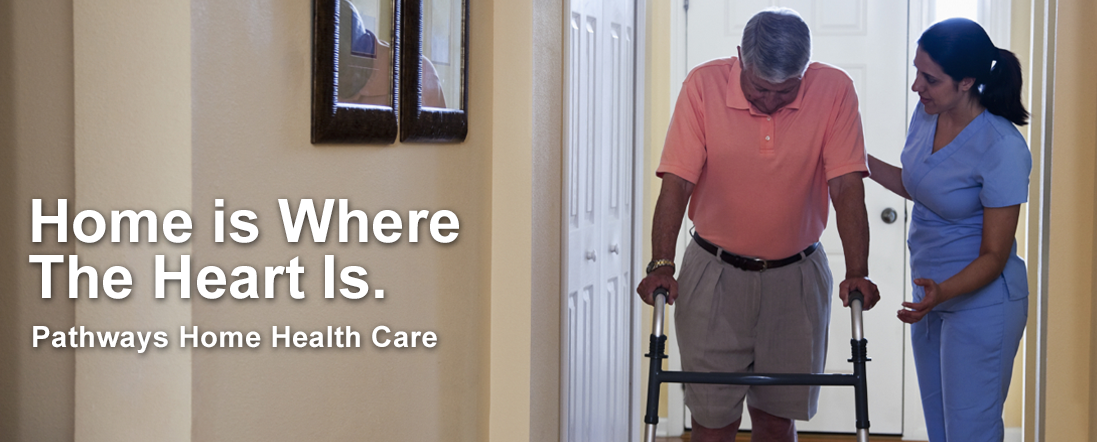
Traumatic Brain Injury Patients Living in Their Own Homes: 5 Ways Home Health Care Can Help
Every year, an estimated 1.7 million people suffer from a traumatic brain injury (TBI), according to the CDC: 52,000 die, 275,000 are hospitalized and 80% are treated and released from a hospital emergency department. But what happens after that? Some people can’t just resume their normal lives after suffering such an injury, especially seniors who already face declining health on top of their TBI. In fact, falls are the leading cause of traumatic brain injury for all ages, with people over the age of 75 having the highest rates of traumatic brain injury-related hospitalization and death due to falls, says Alzheimer’s.org.
In honor of Brain injury Awareness Month (March), let’s discuss how victims of TBI can remain in their own homes while they recover. Home health is often the best route to go, as home is where most people feel most comfortable. Having a skilled team of nurses and aides helping you ease the transition from a hospital stay to independently managing care on your own is important. Here are five ways in which home can help:
Meeting the Unique Needs of Each Patient
Not every patient is the same, and neither is their degree of TBI. In the home setting, it’s possible to create a customized plan of care that is personalized to the patient. Often times, in an outpatient or inpatient setting, quality of care is across the board, with similar routines, services, rehab itineraries, meals, etc. being applied to all patients. It’s important to support the unique needs of the individual with TBI as the key to optimizing quality of life and success, says WebMD. This way, everyone from occupational therapists to speech therapists can customize a plan of attack that takes the unique challenges of the patient into consideration.
Long-Term Care
Unlike other types of injuries, TBI often results in long-term or even lifelong care. With hospital beds at a premium and private facilities charging phenomenal per-day rates, it becomes necessary to determine a long-term plan in terms of services that work with the patient’s budgets and needs. TBI treatment may require extensive therapy and even re-integration into the community. This can all be introduced slowly and on the patient’s timeline without feeling rushed from a hospital setting.
Home is Where the Heart Is
For most people, home represents comfort, a safe place, a sanctuary. Recuperating in a safe place, especially with a TBI, can provide visual and emotional cues that could become helpful in some situations. For example, someone recovering from memory loss after a brain injury may find triggers within the home that can repair those lost connections. But at the very heart of the matter is: humans find comfort in the routine. Patients are often more willing to comply with therapy and other directives when allowed to stay at home; in a clinical setting, they may become more combative, thereby impeding progress.
Convenience
By staying at home through the recovery process and having a skilled team of nurses and aides come to the patient instead of the other way around, the convenience factor is elevated. In a clinical setting, particularly an outpatient setting, there could be a lot of transference via wheelchairs, walkers and the like. Being jostled around from room to room or even to a doctor’s appointment can be traumatic for the brain injury survivor. Having medical and therapy staff rotate in and out of the home means the patient does not have as many physical and emotional demands placed on him or her.
A Proactive Approach
Home care for TBI patients maintains a fresh, proactive approach each and every day, with dedicated staff rotating in and out of the home to provide care. They get the attention they need and the care they need all in one place, from physical therapy to medication assistance. While nursing homes may be the right choice for elderly TBI patients, studies show that the majority of TBI sufferers are younger adults and even children, who may tend to languish in a nursing home. Thus, for many individuals living with TBI, it is critical they are in a setting with TBI rehabilitation to help them thrive, says ScienceDaily. Often, that translates to home care.
Call Pathways Home Health and Hospice Today
Here at Pathways Home Health and Hospice, our goal is to help our patients improve their physical well-being, become as independent as they can be, and enjoy the best quality of life possible. Contact us today at 888-755-7855 to learn more about home care and the TBI patient.

